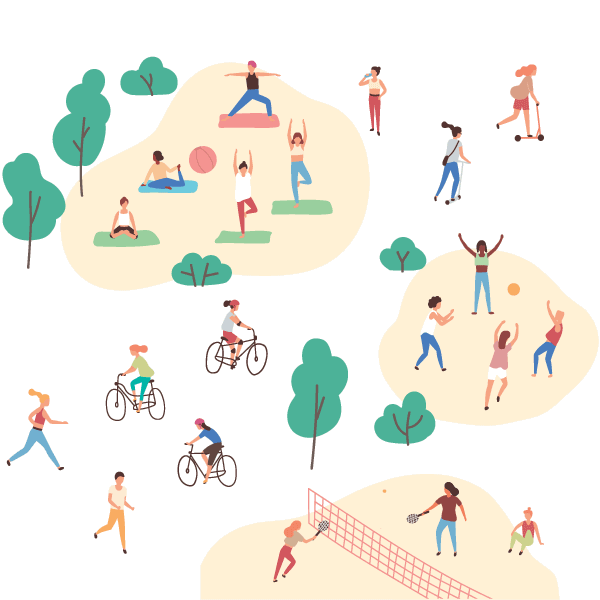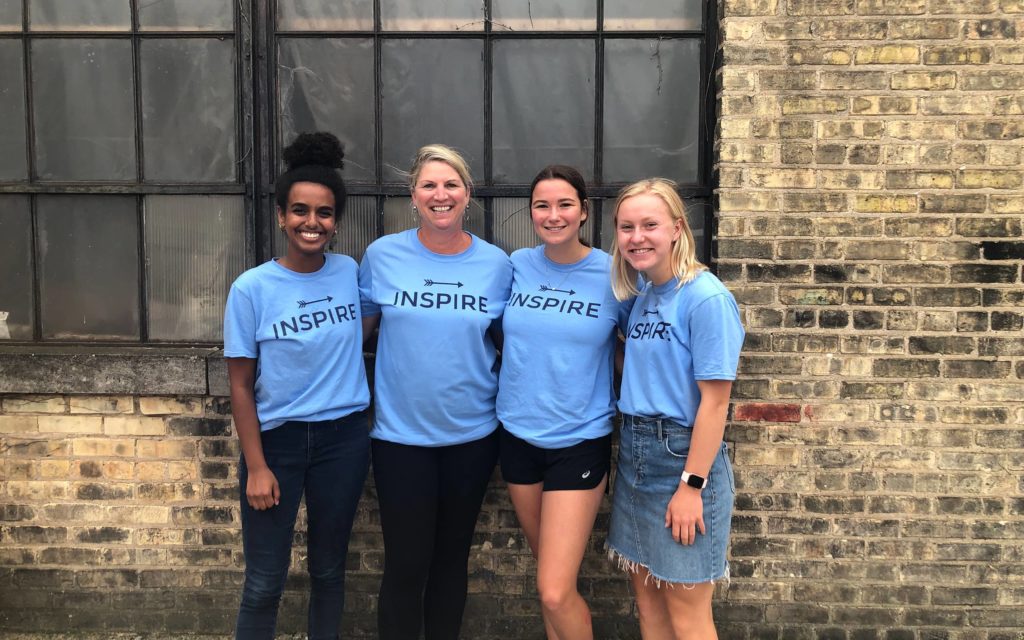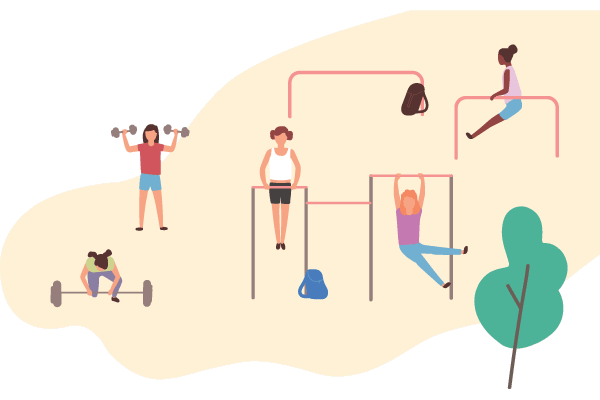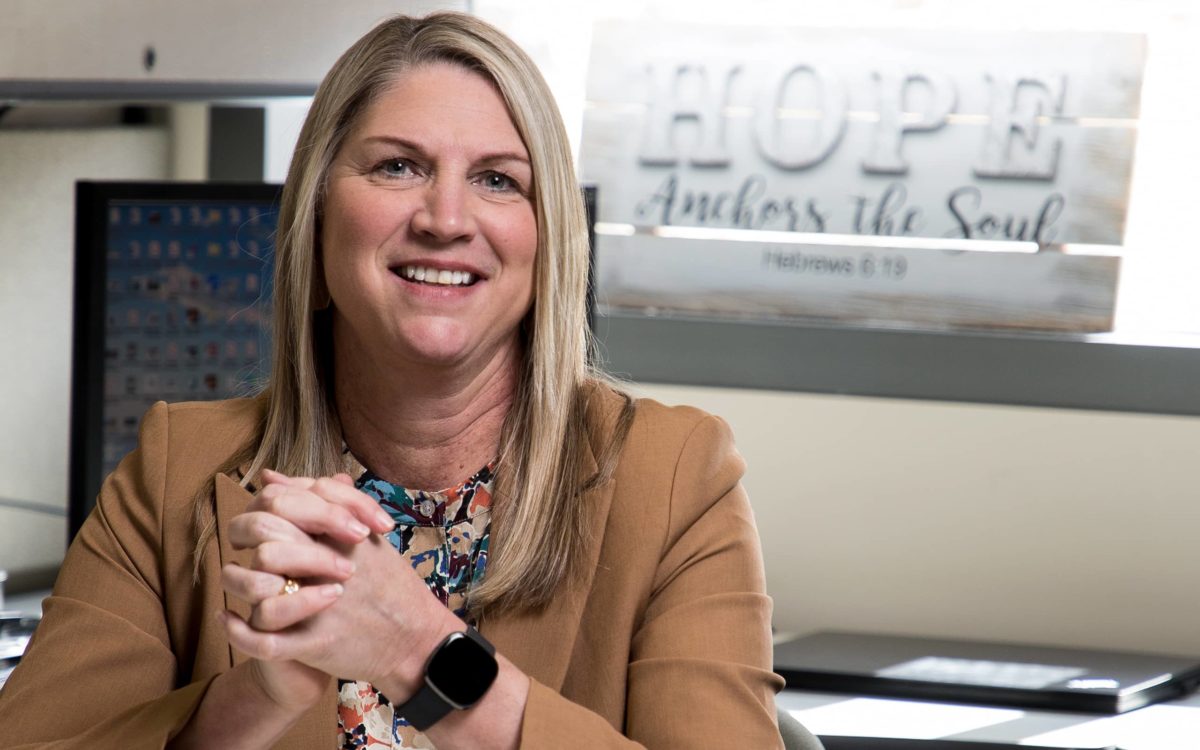Inspiring a Healthier Lifestyle for Adolescent Girls
Dr. Vicki Voskuil

As COVID-19 disrupted health the world over, Dr. Vicki Voskuil was tuned into one of its hidden, insidious effects: an ancillary pandemic that was particularly pernicious among the United States’ youth.
“Especially during the pandemic, it became obvious that we also have this other pandemic of inactivity that’s across all ages,” she says. She has found that “adolescents are — in general — not active enough.” She and her students are seeking to change that — one small group, and study, at a time.
Despite the challenges imposed by COVID-19 restrictions, during the 2020-21 academic year the associate professor of nursing and her research assistants set out to design a physical activity intervention in adolescent girls. They implemented and observed it in the summer of 2021.
“I would say for teenage girls or boys, a lot of researchers focus on after-school programs,” Voskuil says. However, “it’s hard for some kids — especially if they’re babysitting their brothers and sisters or have other after-school activities — to be able to do that.” So this intervention took a different track, as an intensive summer program.
The adolescents in the program were given Fitbits to wear through the seven-week program, during which they participated in physical and educational activities. Each week’s theme contributed to the project’s acronym: INSPIRE. The girls were encouraged to be Informed, Nourished, Strong, Physical, Independent, Resilient and Engaged via scavenger hunts, healthy snack preparation, hiking, cycling and other health-focused — and, crucially, fun — activities.
While the Fitbits tracked objective health data such as heart rates and step counts, participant surveys gauged motivation, self-efficacy (confidence in one’s ability to attain goals) and physical literacy (such as knowledge about physical activity, skill and fitness). “It’s a richer dataset if you have both types of data,” Voskuil explains.
This semester, she and her team are working on publishing the findings of the study. Data documented that participation was high — the attendance rate was 83.42% percent — and that participants’ physical activity increased and resting heart rate decreased significantly over the course of the intervention. Voskuil’s next step will be to seek external grant funding to repeat the study with a larger number of girls, plus a control group.
Study participants were recruited from schools with higher percentages of free and reduced-price lunches provided to students, an indication of socioeconomic status. This opened the opportunity to a population of students who might not otherwise have access to club sports or other physical-activity-based programming during the summer. One focus was to help girls become independent in their physical activity, so at the end of the study Voskuil gave the Fitbits to them in the hope that this would motivate them to stay active.
The involvement of student researchers is integral to Voskuil’s work and mentorship philosophy. “One of my goals is to get them thinking about graduate school and get them thinking about research and what they might be able to do with it,” says Voskuil, because when it comes to nursing research, “we don’t have enough people in the field.”
“That’s one of the best parts of my job,” she adds. “I like to teach, but I really like to work one-on-one with the students, too.”

Starting in fall 2020, teams of Voskuil’s students developed roughly the first half of the seven-week program; the following summer, three student researchers completed that with her and implemented the program.

83.42% Attendance RateData documented that participation was high — the attendance rate was 83.42% percent — and that participants’ physical activity increased and resting heart rate decreased significantly over the course of the intervention.
“I would say it was pretty impressive, what the three of them came up with,” Voskuil says. The Midwest Nursing Research Society concurs: At its 2022 spring conference, the society presented the team with a Distinguished Abstract award.
“I didn’t realize until going to this conference in the spring how great a job Hope does of incorporating undergraduate research into the nursing program,” says Claire Magnuson ’22, one of Voskuil’s research assistants on the project. “I took that for granted, I think. I thought that was something every undergraduate institution did, but that’s clearly not the case.” Not many undergraduates made presentations at the conference, she noticed.
Magnuson relished the opportunity — and its effect on her burgeoning skill set. Voskuil, she says, “really wanted all of our input and our feedback… and I feel like that’s allowed me to grow in my leadership skills through the research. We were given a lot of leadership opportunities.”
While the study is preliminary and enrolled just 15 participants, it investigated a national difficulty — physical inactivity among young girls — and proposed a specific intervention to address it. “There are a lot of interventions out there, but not very many that are working, or have substantial effects on this population,” Voskuil explains.
The project was an outlier in another sense, too. As Magnuson observed during her conference experience, a substantial portion of research activity takes place in master’s- and doctoral-level programs, whereas this work is thanks to the efforts of Voskuil and her undergraduate students.
Each of Voskuil’s research assistants — Magnuson, Johanna Emmanuel ’21 and Marisa Guidone ’23 — brought a unique skill set to the project, Voskuil reports, and took on the project adeptly. “That was an amazing part for me,” she adds.
“I got to know Dr. Voskuil in many different capacities, and she was someone that I was able to talk with — not just about school, but life as well,” says Magnuson. “And I definitely looked toward her for advice in terms of jobs and what I wanted to do after college.”
Magnuson began working as a nurse at Northwestern Memorial Hospital in Chicago in mid-2022, but — thanks in part to her research training — she sees graduate studies in her future.
“I really like to learn; I like school. If you told me I had to go back for a few more years to finish my nursing degree, I would not be mad about it. I definitely want to go to graduate school one day,” she says. “I wouldn’t be as confident in that if it weren’t for some of these research experiences that I had at Hope.”

